0
News Article
Community:
Mar 12, 2019
The proposed bill follows an NBC News investigation that found at least 11 public housing residents had died of carbon monoxide poisoning since 2003.
Authored by: Suzy Khimm for NBC News
Topics: Funding, Health, Housing, Legislation & Policy, Safety
 Shared by Mica O'Brien
Shared by Mica O'Brien
Mica O'Brien posted a
on Mar 14, 2019
The proposed bill follows an NBC News investigation that found at least 11 public housing residents had died of carbon monoxide poisoning since 2003.
0
Research
Community:
Feb 5, 2019
Housing is considered a social determinant of health, with poor housing conditions being associated with poor health. Veterans with disabilities are more likely to experience a housing crisis because of combat experiences and employment instability. We identified facilitators and barriers to finding and maintaining rental housing. We sought to understand the housing needs of Veterans with military-related disabilities using the biopsychoecological model (BEM) as an organizing framework.
Authored by: Semeah, Ahrentzen, Cowper-Ripley, Santos-Roman, Beamish, and Farley for Housing Policy Debate
Topics: Disabilities, Funding, Health, Homelessness, Housing, Legislation & Policy, Research, Safety, Seniors, Stability
 Shared by Housing Is
Shared by Housing Is
Housing Is posted a
on Mar 14, 2019
Semeah, Ahrentzen, Cowper-Ripley, Santos-Roman, Beamish, and Farley for Housing Policy Debate
Housing is considered a social determinant of health, with poor housing conditions being associated with poor health. Veterans with disabilities are more likely to experience a housing crisis because of combat experiences and employment instability.
0
News Article
Community:
Mar 1, 2019
Residents of a South Carolina public housing complex are demanding answers after two of their neighbors died from the gas.
Authored by: Suzy Khimm and Laura Strickler for NBC News
Topics: Housing, Legislation & Policy, Low-income, Safety
 Shared by Mica O'Brien
Shared by Mica O'Brien
Mica O'Brien posted a
on Mar 7, 2019
Suzy Khimm and Laura Strickler for NBC News
Residents of a South Carolina public housing complex are demanding answers after two of their neighbors died from the gas.
0
Webinar
Community:
Feb 28, 2019
Join us for an examination of how cross-sector data sharing initiatives are being used to tackle tough public health problems. The webinar will provide an in-depth look at a cross-sector collaboration in Illinois between public health, law enforcement, emergency medical services, a fire department and a jail aimed at addressing the needs of high utilizers of behavioral health services.
Authored by: The Network for Public Health Law
Topics: Criminal justice, Data sharing, Health, Mental health, Midwest, Partnerships, Safety, Stability
 Shared by Housing Is
Shared by Housing Is
Housing Is posted a
on Mar 6, 2019
The Network for Public Health Law
Join us for an examination of how cross-sector data sharing initiatives are being used to tackle tough public health problems.
0
Research
Community:
Nov 1, 2018
In this study, researchers conduct a literature review across public health, environmental health, medical, sociology, and urban planning journals to synthesize the research on the mental health effects of rat infestations on residents living in urban neighborhoods.
Authored by: Kaylee Byers, Chelsea G. Himsworth, and Raymond Lam for The Journal of Environmental Health
Topics: Health, Housing, Low-income, Mental health, Research, Safety
 Shared by Housing Is
Shared by Housing Is
Housing Is posted a
on Feb 28, 2019
Kaylee Byers, Chelsea G. Himsworth, and Raymond Lam for The Journal of Environmental Health
In this study, researchers conduct a literature review across public health, environmental health, medical, sociology, and urban planning journals to synthesize the research on the mental health effects of rat infestations on residents living in urban neighborhoods.
0
Publication
Community:
Jan 31, 2019
For many years, the vulnerabilities of children experiencing homelessness have been glossed over on the assumption that their innate resilience would overcome the impact of homelessness. As someone who worked in the field, I would often hear, “Oh, they’ll never remember.” Today we know better. We know more about how the brain develops and about how trauma impacts brain development. There is a growing recognition among providers that these early years are critical for establishing a foundation for emotional, mental, and physical wellbeing, and that we don’t get a second chance at early childhood.
Authored by: Carol Klocek for SchoolHouse Connection
Topics: Early childhood, Education, Homelessness, Housing, Low-income, Research, Safety, Stability
 Shared by Housing Is
Shared by Housing Is
Housing Is posted a
on Feb 21, 2019
Carol Klocek for SchoolHouse Connection
For many years, the vulnerabilities of children experiencing homelessness have been glossed over on the assumption that their innate resilience would overcome the impact of homelessness. As someone who worked in the field, I would often hear, “Oh, they’ll never remember.” Today we know better.
0
Infographics
Community:
Recently, several of the BUILD communities approached us with a seemingly straightforward question about how many housing inspectors other cities have to enforce their rental codes and protect residents from unsafe housing. They intended to use this information to better understand the role housing inspectors play within different communities, since they are often a major stakeholder in identifying and addressing building related issues that directly impact the health of residents (e.g., chronic asthma).
Authored by: Emily Yu for The BUILD Health Challenge
Topics: Asthma, Health, Housing, Research, Safety
 Shared by Mica O'Brien
Shared by Mica O'Brien
Mica O'Brien posted a
on Feb 20, 2019
Emily Yu for The BUILD Health Challenge
Recently, several of the BUILD communities approached us with a seemingly straightforward question about how many housing inspectors other cities have to enforce their rental codes and protect residents from unsafe housing.
0
News Article
Community:
Feb 4, 2019
The U.S. territory needs to urgently tackle issues such as "widespread informal housing" and "the exorbitant amount of abandoned spaces" as it rebuilds after Hurricane Maria.
Authored by: Nicole Acevedo for NBC News
Topics: Community development, Food insecurity, Funding, Homelessness, Housing, Legislation & Policy, Nutrition, Safety, Stability, U.S. Territories
 Shared by Housing Is
Shared by Housing Is
Housing Is posted a
on Feb 4, 2019
Nicole Acevedo for NBC News
The U.S. territory needs to urgently tackle issues such as "widespread informal housing" and "the exorbitant amount of abandoned spaces" as it rebuilds after Hurricane Maria.
0
News Article
Community:
Jan 29, 2019
Housing complex would integrate residents with special needs into the larger community
Authored by: Tara Bahrampour for The Washington Post
Topics: Disabilities, Dual-generation, Housing, Mental health, Place-based, Safety
 Shared by Housing Is
Shared by Housing Is
Housing Is posted a
on Jan 31, 2019
Tara Bahrampour for The Washington Post
Housing complex would integrate residents with special needs into the larger community
0
Policy Brief
Community:
Jan 30, 2019
NLIHC stands ready to work with all members of Congress to seize the opportunity to address the full scope of affordable housing challenges for families with the greatest needs. In the memorandum below, we provide our recommendations on steps Congress can take—whether through an infrastructure spending package, the appropriations process, housing finance reform, or other legislative avenues—to make the critical investments in the affordable housing our nation needs to help the economy, our communities, children and families thrive.
Authored by: National Low Income Housing Coalition
Topics: Child welfare, Community development, Criminal justice, Funding, Homelessness, Housing, Legislation & Policy, Low-income, Mobility, Racial inequalities, Safety
 Shared by Housing Is
Shared by Housing Is
Housing Is posted a
on Jan 30, 2019
National Low Income Housing Coalition
NLIHC stands ready to work with all members of Congress to seize the opportunity to address the full scope of affordable housing challenges for families with the greatest needs.
0
Publication
Community:
Sep 1, 2018
The firearm, obesity, and opioid epidemics are among the most important public health crises of our time. Each epidemic has a complex etiology that challenges efforts at mitigation. From this, a central question arises for researchers, clinicians, and policymakers: How can we identify what matters most within a broad range of causal factors in these epidemics, and can we draw cross-epidemic inferences that will help inform our thinking?
Authored by: Sandro Galea for Milbank Memorial Fund
Topics: Food insecurity, Health, Low-income, Nutrition, Obesity, Partnerships, Safety, Substance abuse
 Shared by Mica O'Brien
Shared by Mica O'Brien
Mica O'Brien posted a
on Jan 24, 2019
Sandro Galea for Milbank Memorial Fund
The firearm, obesity, and opioid epidemics are among the most important public health crises of our time. Each epidemic has a complex etiology that challenges efforts at mitigation.
0
Research
Community:
Sep 1, 2018
Systematic analysis of health care complaints can improve quality and safety by providing patient-centered insights that localize issues and shed light on difficult-to-monitor problems.
Authored by: Alex Gillespie and Tom Reader for Milbank Memorial Fund
Topics: Health, Research, Safety
 Shared by Mica O'Brien
Shared by Mica O'Brien
Mica O'Brien posted a
on Jan 24, 2019
Alex Gillespie and Tom Reader for Milbank Memorial Fund
Systematic analysis of health care complaints can improve quality and safety by providing patient-centered insights that localize issues and shed light on difficult-to-monitor problems.
0
Research
Community:
Sep 1, 2018
This article shows how a complex systems perspective may be used to analyze the commercial determinants of noncommunicable diseases (NCDs), and it explains how this can help with (1) conceptualizing the problem of NCDs and (2) developing effective policy interventions.
Authored by: Milbank Memorial Fund
Topics: Health, Partnerships, Research, Safety
 Shared by Mica O'Brien
Shared by Mica O'Brien
Mica O'Brien posted a
on Jan 24, 2019
This article shows how a complex systems perspective may be used to analyze the commercial determinants of noncommunicable diseases (NCDs), and it explains how this can help with (1) conceptualizing the problem of NCDs and (2) developing effective policy interventions.
0
Publication
Community:
Jan 24, 2019
Affordable housing campaigns are not new, of course, but what is unprecedented and transformative about Opportunity Starts at Home is the scope and diversity of the partners that are joining forces to advocate for more robust and equitable federal housing policies. The campaign is advised by a Steering Committee including leading national organizations representing a wide range of interests that are working shoulder-to-shoulder to solve the affordable housing crisis.
Authored by: Opportunity Starts at Home
Topics: Asset building, Child welfare, CLPHA, Community development, Early childhood, Education, Food insecurity, Funding, Health, Homelessness, Housing, Immigrants, Legislation & Policy, Low-income, Mobility, Out-of-school time, Partnerships, Racial inequalities, Safety, Seniors, Stability, Substance abuse, Youth
 Shared by Mica O'Brien
Shared by Mica O'Brien
Mica O'Brien posted a
on Jan 24, 2019
Opportunity Starts at Home
Affordable housing campaigns are not new, of course, but what is unprecedented and transformative about Opportunity Starts at Home is the scope and diversity of the partners that are joining forces to advocate for more robust and equitable federal housing policies.
0
Publication
Community:
Oct 9, 2018
Women with children, especially, stay hidden in fear of losing custody of their children. As a result, we will never see them camping in tents or in downtown parks.
Authored by: Mary Ellen Mitchell for SchoolHouse Connection
Topics: Early childhood, Homelessness, Housing, Legislation & Policy, Low-income, Safety, Stability
 Shared by Mica O'Brien
Shared by Mica O'Brien
Mica O'Brien posted a
on Jan 11, 2019
Mary Ellen Mitchell for SchoolHouse Connection
Women with children, especially, stay hidden in fear of losing custody of their children. As a result, we will never see them camping in tents or in downtown parks.
0
News Article
Community:
Dec 27, 2018
Basic necessities like food and water have been restored since the October afternoon when the storm pummeled Panama City. But a new crisis has emerged over a need even more primal — housing.
Authored by: Kathryn Varn for Tampa Bay Times
Topics: Child welfare, Health, Housing, Low-income, Safety, South
 Shared by Mica O'Brien
Shared by Mica O'Brien
Mica O'Brien posted a
on Jan 7, 2019
Kathryn Varn for Tampa Bay Times
Basic necessities like food and water have been restored since the October afternoon when the storm pummeled Panama City. But a new crisis has emerged over a need even more primal — housing.
0
Publication
Community:
Jan 2, 2019
Housing quality, instability, and unaffordability threaten the well-being of millions of children across the nation. Research shows that housing is the first rung on the ladder to economic opportunity and that a person’s access to opportunity is intrinsically linked with that of the community where they live. As home prices increase, the gap between rents and incomes continues to widen, and nearly half of today’s renters are cost burdened. Child welfare professionals, educators, and pediatricians can strengthen their work by understanding the central importance of housing as a determinant of wide-ranging outcomes for the country’s youngest generation.
Authored by: Veronica Gaitan for How Housing Matters
Topics: Child welfare, Early childhood, Health, Housing, Research, Safety
 Shared by Mica O'Brien
Shared by Mica O'Brien
Mica O'Brien posted a
on Jan 7, 2019
Veronica Gaitan for How Housing Matters
Housing quality, instability, and unaffordability threaten the well-being of millions of children across the nation.
0
Interactive
Community:
Jan 1, 2019
A collection of resources that cover public health issues such as dental care, diabetes, vaccines, and nutrition.
Authored by: Mark Barna for The Nation's Health
Topics: Child welfare, Health, Low-income, Safety
 Shared by Mica O'Brien
Shared by Mica O'Brien
Mica O'Brien posted a
on Jan 7, 2019
Mark Barna for The Nation's Health
A collection of resources that cover public health issues such as dental care, diabetes, vaccines, and nutrition.
0
Report
Community:
Jan 1, 2019
Environmental health services, from asthma home visiting programs to lead testing, can help protect children from the dangerous environmental exposures they encounter every day. But the problem for parents and caregivers is accessing such services, a new analysis from APHA’s Center for Public Health Policy shows.
Authored by: Julia Haskins for The Nation's Health
Topics: Asthma, Child welfare, Health, Healthy homes, Housing, Lead, Low-income, Place-based, Preventative care, Research, Safety
 Shared by Mica O'Brien
Shared by Mica O'Brien
Mica O'Brien posted a
on Jan 7, 2019
Julia Haskins for The Nation's Health
Environmental health services, from asthma home visiting programs to lead testing, can help protect children from the dangerous environmental exposures they encounter every day.
0
Publication
Community:
Mar 28, 2018
Communities can leverage local housing and neighborhood policies to address gun violence through tools such as demolition, vacant property maintenance and reuse, foreclosure mitigation counseling, homeownership support programs, code enforcement, and zoning.
Authored by: Christina Plerhoples Stacy for How Housing Matters
Topics: Community development, Housing, Partnerships, Place-based, Safety
 Shared by Housing Is
Shared by Housing Is
Housing Is posted a
on Dec 20, 2018
Christina Plerhoples Stacy for How Housing Matters
Communities can leverage local housing and neighborhood policies to address gun violence through tools such as demolition, vacant property maintenance and reuse, foreclosure mitigation counseling, homeownership support programs, code enforcement, and zoning.
0
Webinar
Community:
Dec 17, 2018
Webinar slide deck that provides a brief overview of FUP, building blocks of successful FUP voucher implementation, facilitated panel on increasing impact and enhancing FUP operations, and other opportunities and resources.
Authored by: CSH: 1 Roof and CLPHA
Topics: Child welfare, CLPHA, Foster care, Funding, Housing, Legislation & Policy, Low-income, Partnerships, Preventative care, Safety, Supportive housing, Youth
 Shared by Mica O'Brien
Shared by Mica O'Brien
Mica O'Brien posted a
on Dec 18, 2018
Webinar slide deck that provides a brief overview of FUP, building blocks of successful FUP voucher implementation, facilitated panel on increasing impact and enhancing FUP operations, and other opportunities and resources.
0
Publication
Community:
Dec 6, 2018
The administration has proposed an expansion of the “public charge” rule that would make it more difficult for applicants whom officials deem likely to rely on public assistance to obtain lawful permanent residence (a “green card”) or a temporary visa. Among other changes, the rule would expand public charge determinations to include an applicant’s enrollment in the Medicaid program. Adding Medicaid to the list of public charge benefits that would be considered may force immigrants to choose between health insurance coverage and a future green card—with adverse consequences for parents and their children.
Authored by: Emily M. Johnston, Genevieve M. Kenney, and Jennifer M. Haley for The Urban Institute
Topics: Affordable Care Act, Health, Housing, Immigrants, Legislation & Policy, Medicaid / Medicare, Safety
 Shared by Mica O'Brien
Shared by Mica O'Brien
Mica O'Brien posted a
on Dec 6, 2018
Emily M. Johnston, Genevieve M. Kenney, and Jennifer M. Haley for The Urban Institute
The administration has proposed an expansion of the “public charge” rule that would make it more difficult for applicants whom officials deem likely to rely on public assistance to obtain lawful permanent residence (a “green card”) or a temporary visa.
0
News Article
Community:
Nov 30, 2018
Despite their fearsome reputation, a new study finds most low-income housing projects aren't magnets for crime. What makes some more dangerous?
Authored by: Michael Friedrich for CityLab
Topics: Housing, Low-income, Research, Safety
 Shared by Mica O'Brien
Shared by Mica O'Brien
Mica O'Brien posted a
on Nov 30, 2018
Michael Friedrich for CityLab
Despite their fearsome reputation, a new study finds most low-income housing projects aren't magnets for crime. What makes some more dangerous?
0
Research
Community:
May 16, 2018
Treating opioid use disorder among homeless families can reduce hepatitis C transmission, infant drug withdrawal, and overdose, which is the leading cause of death among people experiencing homelessness. Although office-based treatment is effective for homeless patients, homelessness (especially among families) creates barriers to office-based opioid treatment, such as stigma, child care needs, or distance from an office site. To reduce barriers to treatment, the Family Team at the Boston Health Care for the Homeless Program added a shelter-based opioid treatment program to its outreach clinic at a family homeless shelter and motel. The Family Team consists of a physician, a nurse, two case managers, and a behavioral health clinician.
Authored by: American Public Health Association
Topics: Health, Homelessness, Housing, Place-based, Preventative care, Safety, Stability, Substance abuse
 Shared by Mica O'Brien
Shared by Mica O'Brien
Mica O'Brien posted a
on Nov 21, 2018
American Public Health Association
Treating opioid use disorder among homeless families can reduce hepatitis C transmission, infant drug withdrawal, and overdose, which is the leading cause of death among people experiencing homelessness.
0
Interactive
Community:
Resources for integrating resiliency, hope, and wellness in schools
Authored by: Treatment and Services Adaptation Center
Topics: Child welfare, Low-income, Partnerships, Place-based, Research, Safety
 Shared by Mica O'Brien
Shared by Mica O'Brien
Mica O'Brien posted a
on Nov 19, 2018
Treatment and Services Adaptation Center
Resources for integrating resiliency, hope, and wellness in schools



 Shared by Housing Is
on Mar 14, 2019
Shared by Housing Is
on Mar 14, 2019
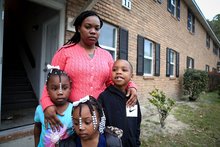
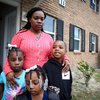

 Shared by Housing Is
on Mar 6, 2019
Shared by Housing Is
on Mar 6, 2019

 Shared by Housing Is
on Feb 28, 2019
Shared by Housing Is
on Feb 28, 2019

 Shared by Housing Is
on Feb 21, 2019
Shared by Housing Is
on Feb 21, 2019

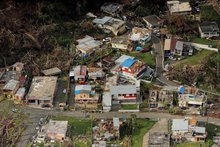
 Shared by Housing Is
on Feb 4, 2019
Shared by Housing Is
on Feb 4, 2019
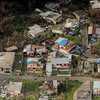

 Shared by Housing Is
on Jan 31, 2019
Shared by Housing Is
on Jan 31, 2019

 Shared by Housing Is
on Jan 30, 2019
Shared by Housing Is
on Jan 30, 2019
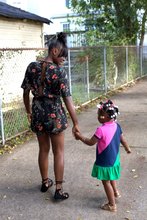

 Shared by Housing Is
on Dec 20, 2018
Shared by Housing Is
on Dec 20, 2018

